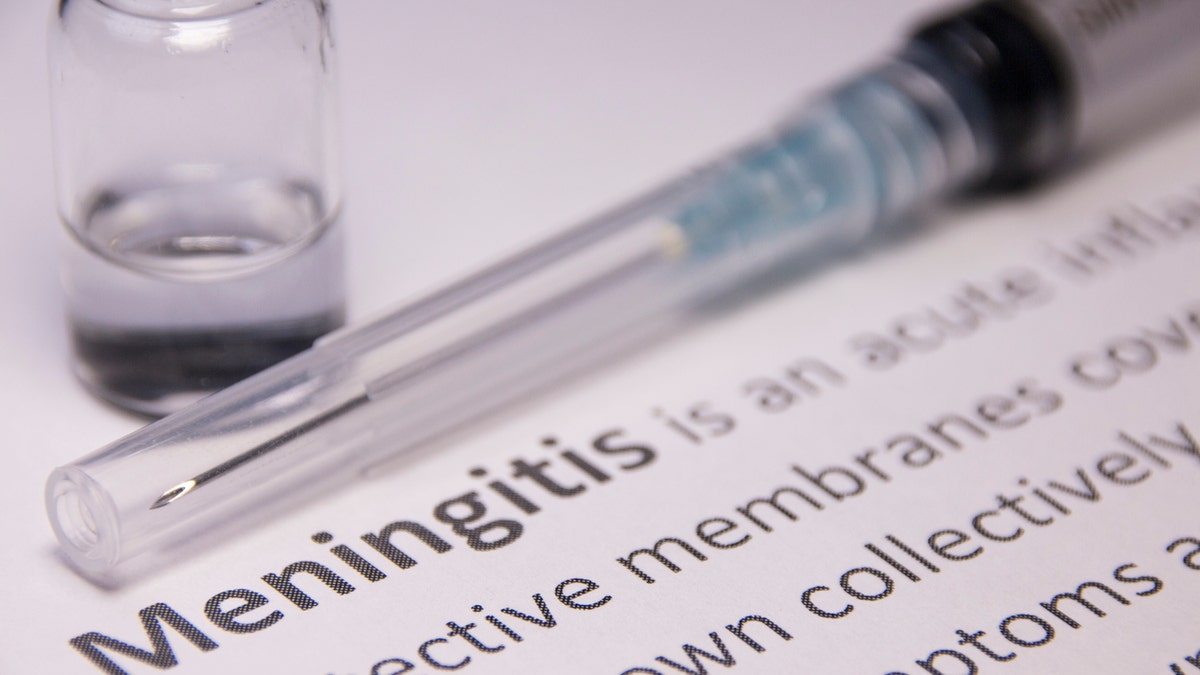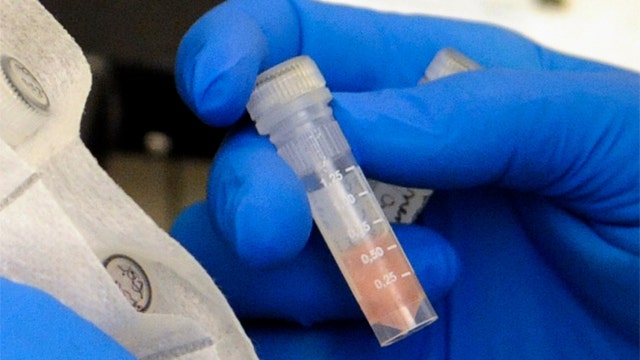
Meningitis Vaccine (Hailshadow)
Thousands of people in the U.S. each year are affected by bacterial meningitis, which can be deadly.
Newborns to grown adults can be impacted by the infection. Vaccines help prevent bacterial meningitis, though they are not 100 percent effective.
While there are different strains of the infection, bacterial meningitis is the most serious form.
INFANT DIES DAY AFTER SHOWING SYMPTOMS OF MENINGITIS, FAMILY SAYS
Read on for a look for a look at the condition.
What is meningitis?
Meningitis is “an inflammation of the membranes (meninges) surrounding your brain and spinal cord,” according to the Mayo Clinic.
There are many different types of meningitis, ranging from bacterial, viral and the relatively rarely fungal, though viral is the most common, Health Line reports.
In extreme cases, bacterial meningitis can lead to death — and it can happen quickly. Though most people recover, the Center for Disease Control and Prevention (CDC) noted that this type of the infection can cause death in just several hours. According to CDC data, an average of 500 people in the U.S. died from bacterial meningitis between 2003 and 2007.
Those who survive the infection may end up with permanent disabilities such as hearing loss or brain damage.
What causes bacterial meningitis and how does it spread?
Bacterial meningitis, which, according to the Florida Hospital System, affects roughly 4,000 people in the U.S. each year, is caused by bacteria that enters the bloodstream which then travels to the brain and spinal cord.
Bacterial meningitis can also “occur when bacteria directly invade the meninges. This may be caused by an ear or sinus infection, a skull fracture, or, rarely, after some surgeries,” according to the Mayo Clinic.
CDC WARNS 'DO NOT EAT' HONEY SMACKS AFTER SALMONELLA CASES REACH 100
Those who travel or live in "community" settings (such as a college dorm) are also at risk, though they typically are affected by meningococcal disease.
More specifically, the infection is caused by different strains of bacteria, which “vary by age group,” the CDC notes.
Newborns, young children and older adults
Newborns, young children and older or elderly adults are susceptible to a bacterium called Streptococcus pneumoniae, which typically causes pneumonia and ear and sinus infections, according to the Mayo Clinic.
Children
The bacterium Haemophilus influenzae type b (Hib) can cause bacterial meningitis in children, and, in some cases, in the elderly, according to the CDC. At one time, these bacteria were the leading cause of bacterial meningitis in children — “but new Hib vaccines have greatly reduced the number of cases of this type of meningitis,” according to the Mayo Clinic.
Teens and young adults
A bacterium known as Neisseria meningitidis — a leading cause of bacterial meningitis, according to the CDC — affects teens and young adults.
“These bacteria commonly cause an upper respiratory infection but can cause meningococcal meningitis when they enter the bloodstream,” the Mayo Clinic reports.
Pregnant women
Listeria monocytogenes — a bacteria commonly found in unpasteurized cheeses, hot dogs and lunch meats, according to the Mayo Clinic — is a cause of bacterial meningitis in pregnant women. In fact, listeria “can cross the placental barrier, and infections in late pregnancy may be fatal to the baby,” the clinic warned.
CONNECTICUT MOM DIES DAYS AFTER GIVING BIRTH TO THIRD BABY
Newborns, older adults and those with weakened immune systems are also at risk.
Signs, symptoms, treatment and prevention
Fever, nausea, stiff neck, headache and confusion are common signs and symptoms of the infection, and typically appear within three to seven days after exposure, the CDC reported.
Later symptoms of bacterial meningitis can include seizures or coma.
In infants, "fever, headache, and neck stiffness may be absent or difficult to notice," the CDC warned.
In addition to eating well, practicing good hygiene and generally staying healthy, there are also at least four different vaccines to protect against meningitis.
- Haemophilus influenzae type b (Hib) vaccine
- Pneumococcal conjugate vaccine
- Pneumococcal polysaccharide vaccine
- Meningococcal conjugate vaccine
Each option helps prevent different strands of the infection.
While there’s still a chance to develop bacterial meningitis even after receiving the vaccine, it is less likely, according to the CDC.
Fox News’ Alexandria Hein contributed to this report.









































